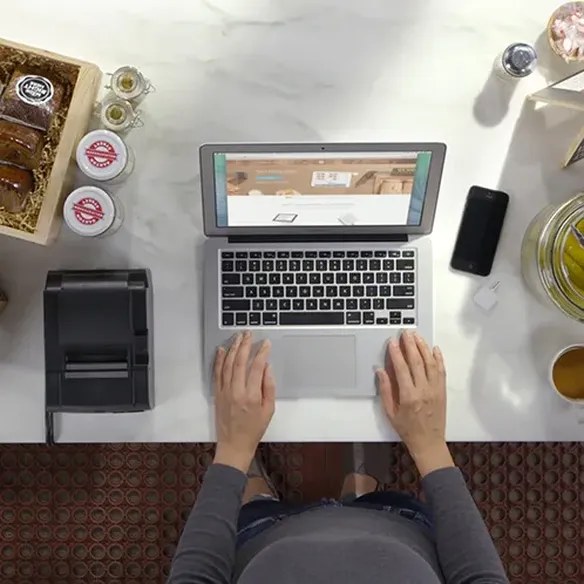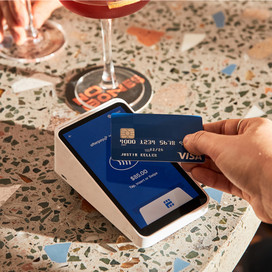Table of contents
Receipts can be a hassle, and we all know how easy it is to let the little pieces of paper get out of control. But whether you’re a brand-new sole trader or the owner of a flourishing multi-location business, good record keeping is a valuable habit to start early and managing business receipts is the best place to start.
You may be wondering: Which receipts should you keep track of if you want to make valuable tax deductions or compile a Business Activity Statement? In what form should you be keeping them — and for how long? Here’s what you need to know about managing your business receipts.
Which receipts do I need to keep?
The Australian Taxation Office (ATO) tells us that good record keeping is essential to helping small business owners manage cash flow, meet their tax obligations and get a holistic picture of how their business is doing.
But what the ATO doesn’t mention is how much hot water you and your business could be in if you don’t keep the right records. When it comes to keeping receipts for tax deductions or reporting, the best approach you can take is ‘better safe than sorry.’ Consulting with your accountant and ensuring that you have a solid support system in place is also a good idea.
If you’re just starting your first business (or you’re reorganising for a new financial year), here are some business records you should definitely be keeping:
Inventory
Are you purchasing inventory to sell to your customers? Are you buying raw materials to manufacture items to sell? Make sure that you hold on to any business receipts or documents that identify the payee, the amount and proof of payments for any items.
Assets
Your assets are everything ranging from property and vehicles to the small tools you use and replace every day such as furniture, laptops and machinery. If you’ve done your business taxes in the past, you may be familiar with the complicated concept of depreciation (the idea that assets lose value over time), but you should keep in mind that depreciation is an expense that you can claim at tax time.
For this reason, make sure you keep all business receipts related to your assets. For example, keep records when you upgrade your office desktop computer or arrange to have your coffee machine serviced. Don’t forget that you should also keep a receipt whenever you sell an asset, too!
Expenses
Another good thing to keep in mind is that if you are claiming an expense for your business that you also use intermittently for personal reasons, you may be required to keep records showing how often you’ve used it for business purposes.
You also want to keep all tax invoices, credit card payment receipts and diaries of recorded small cash expenses. Other things to consider keeping a record of: education expenses (e.g., seminars or training), travel expenses (e.g., travel or accommodation when visiting clients or vendors) or entertainment and networking expenses.
How long should I keep my receipts?
The ATO reminds small business owners that they have a legal obligation to keep business receipts that they’ve claimed as tax deductions for five years. But there are some cases where records may need to be kept longer.
Do I have to keep the physical paper receipt?
Increasingly small business owners find themselves in a situation where they’re ordering or paying for goods or services online — Square Invoices is a great example of a purely digital form of payment!
The good news is that all records simply need to be in writing, in either an electronic or paper form. So there’s no need to start printing out your credit card bills.
Organising your receipts
Since the ATO allows you to keep electronic records, utilising a tool to help compile your digital receipts can provide your small business with some big benefits.
With the right electronic record-keeping software, you can:
- Automatically total your deductions and receipts and compile easy-to-read reports.
- Produce online invoices and summaries that are goods and services tax and income tax ready.
- Have a secure backup of your business records in case of the unexpected.
- Stop managing shoeboxes full of receipts.
Some online tools even let you report information automatically to the ATO through its online portal, helping you save time and simplifying business reporting.
![]()











